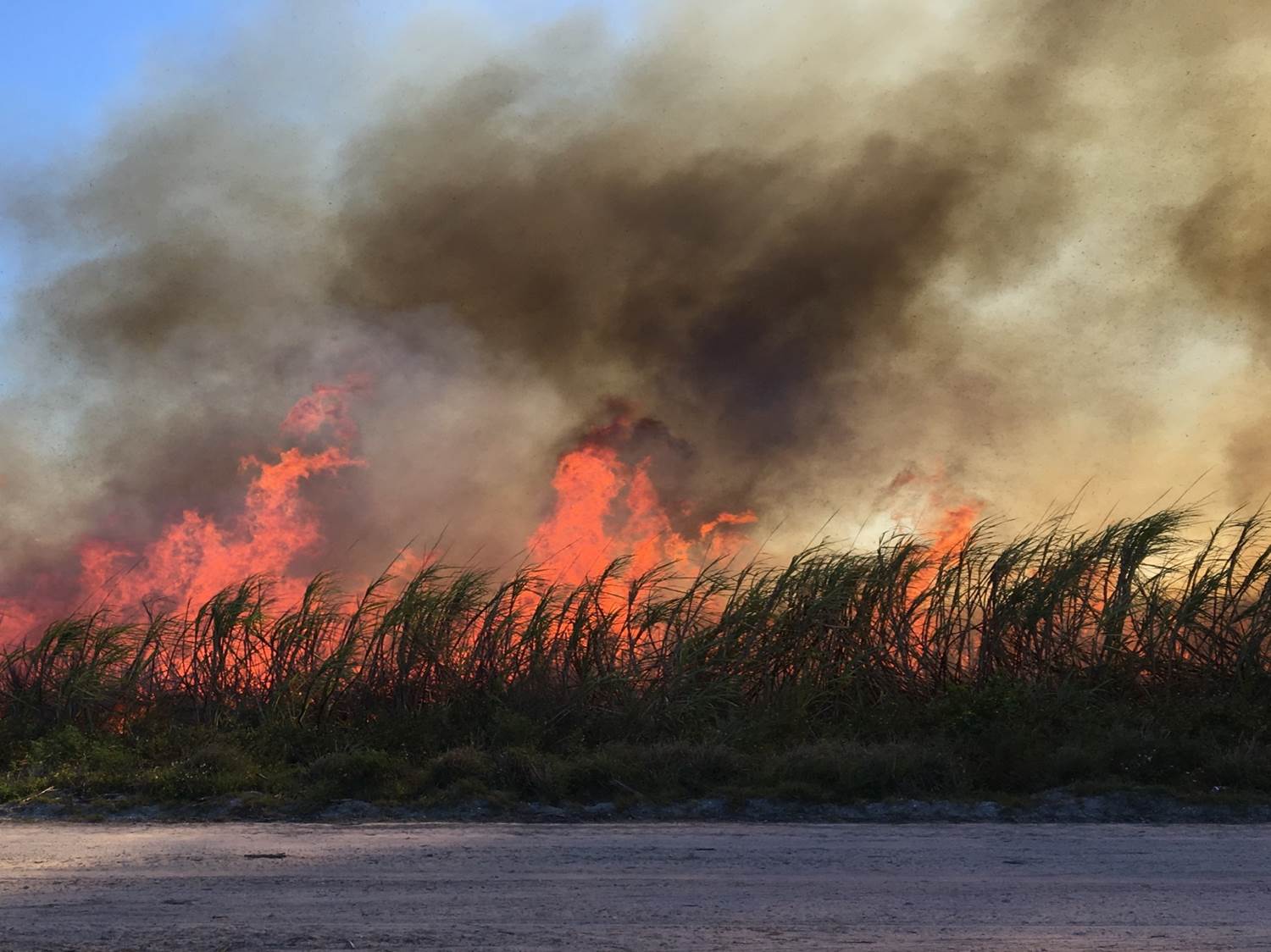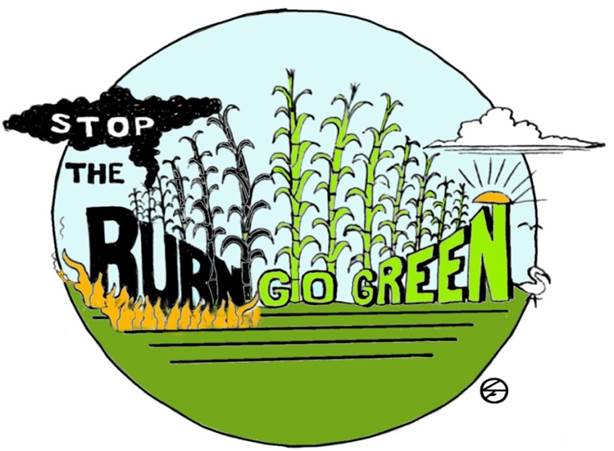 Stop the Burn!
Stop the Burn!
Pre-harvest sugar field burning is a toxic and outdated harvesting practice that takes place every year from October through May over the approximately 400,000 acres of sugarcane fields in and around the Everglades Agricultural Area (EAA). Farmers burn sugarcane crops before harvest to remove the leaves and tops of the sugarcane plant leaving only the sugar-bearing stalk to be harvested. This unnecessary harvesting practice negatively impacts the health, quality of life, and economic opportunity of residents living in and around the EAA.
 Discriminatory burn regulations based on wind direction ensure more affluent communities to the east are spared when the wind blows their way, while residents in and around the Glades (predominantly lower-income communities of color) remain unprotected from the smoke and ash — when the wind blows toward them, burning permits are granted. The discriminatory burning regulations are under the authority of Florida Agricultural Commissioner Wilton Simpson, who oversees the Florida Forest Service, the agency that hands out pre-harvest burn permits.
Discriminatory burn regulations based on wind direction ensure more affluent communities to the east are spared when the wind blows their way, while residents in and around the Glades (predominantly lower-income communities of color) remain unprotected from the smoke and ash — when the wind blows toward them, burning permits are granted. The discriminatory burning regulations are under the authority of Florida Agricultural Commissioner Wilton Simpson, who oversees the Florida Forest Service, the agency that hands out pre-harvest burn permits.
For more information, visit stopsugarburning.org or contact Patrick Ferguson.